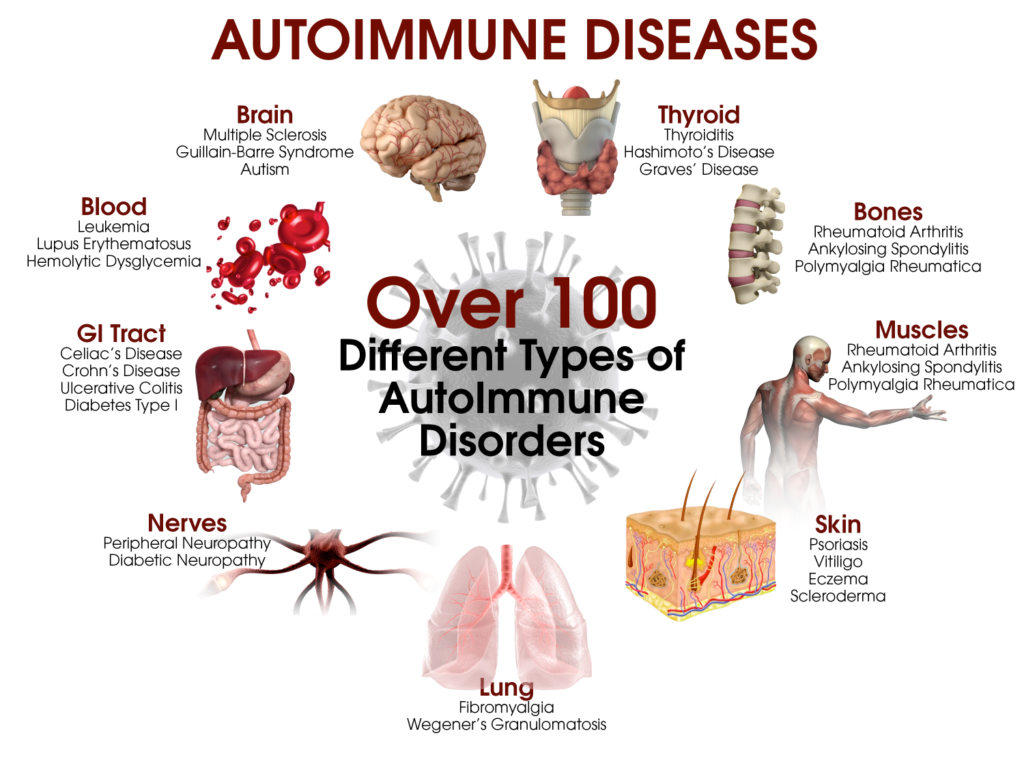Researchers have identified 80-100 autoimmune diseases, and at least 40 more diseases that may have an autoimmune basis. An autoimmune condition occurs when the body’s immune system malfunctions. It mistakenly identifies healthy cells and tissues as foreign invaders and starts attacking and destroying them. This can happen in almost any part of the body, including the brain, muscles, skin, and other organs. Interestingly the majority of autoimmune conditions are experienced by females. Which makes me want to explore the potential genetics behind this.
Symptoms of autoimmunity can affect several or all body organs. Until the condition becomes acute, symptoms often come and go and are unspecific and varied. Symptoms that may indicate that your immune system is not functioning properly include:
- Fatigue
- Joint pain and stiffness
- Abdominal pain or discomfort (sometimes associated with irritable bowel syndrome or IBS)
- Anaemia and similar vitamin or mineral deficiencies
- Mood changes
- Skin rash
- Recurring fever


